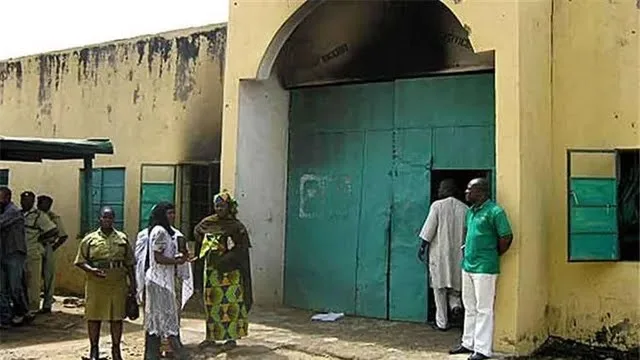In a bold move highlighting the impact of the rising cost of living, inmates at the Jos Correctional Center in Nigeria staged a protest over plans to reduce their food rations.
This event underscores the broader economic challenges faced by the country, which last month saw widespread protests due to soaring living costs.
The inmates’ protest, sparked by a tip-off about the impending cutbacks, showcases the acute stress placed on correctional facilities by economic downturns.
Economic Strains Echo Within Walls
The protest erupted on a quiet Friday when inmates, informed about the reduction in their food portions, decided to voice their discontent.
Refusing to adhere to the usual routines and skipping breakfast, they gathered, making their grievances heard. The situation escalated until custodial officials resorted to using tear gas to disperse the agitated crowd, a stark indication of the tensions boiling over due to the economic strain.
The Comptroller of the Jos Correctional Center, Raphael Ibinuhi, attributed the unrest to the skyrocketing prices in the market, which forced the hand of the food contractor to reduce the portion sizes.
Roots of Discontent
This incident at the Jos Correctional Center is not an isolated one but a reflection of the broader economic difficulties plaguing Nigeria. The country has been grappling with inflation and a high cost of living, factors that contribute significantly to the hardship faced by its citizens, including those incarcerated.
The reduction in food rations within correctional facilities is a direct consequence of these economic woes, shedding light on how poverty and poor living conditions contribute to a cycle of discontent and unrest, potentially exacerbating recidivism rates among inmates.
Implications and Reflections
The protest at the Jos Correctional Center serves as a critical reminder of the human impact of economic policies and hardships.
As correctional facilities struggle to cope with the rising costs, the welfare of inmates becomes an increasingly pressing concern. This incident not only highlights the need for a reevaluation of budget allocations and policies affecting correctional facilities but also prompts a broader reflection on the socio-economic conditions that lead to incarceration. With the rising cost of living affecting all sectors of society, the situation calls for cohesive action to address the root causes of economic hardship and its far-reaching implications.
The events at the Jos Correctional Center underscore the interconnectedness of economic health and social stability.
As the country navigates through these turbulent economic times, the plight of those behind bars serves as a poignant reminder of the widespread impact of economic downturns.
It beckons policymakers, correctional authorities, and society at large to consider the broader implications of economic hardship and to strive for solutions that address the well-being of all citizens, including the incarcerated.
